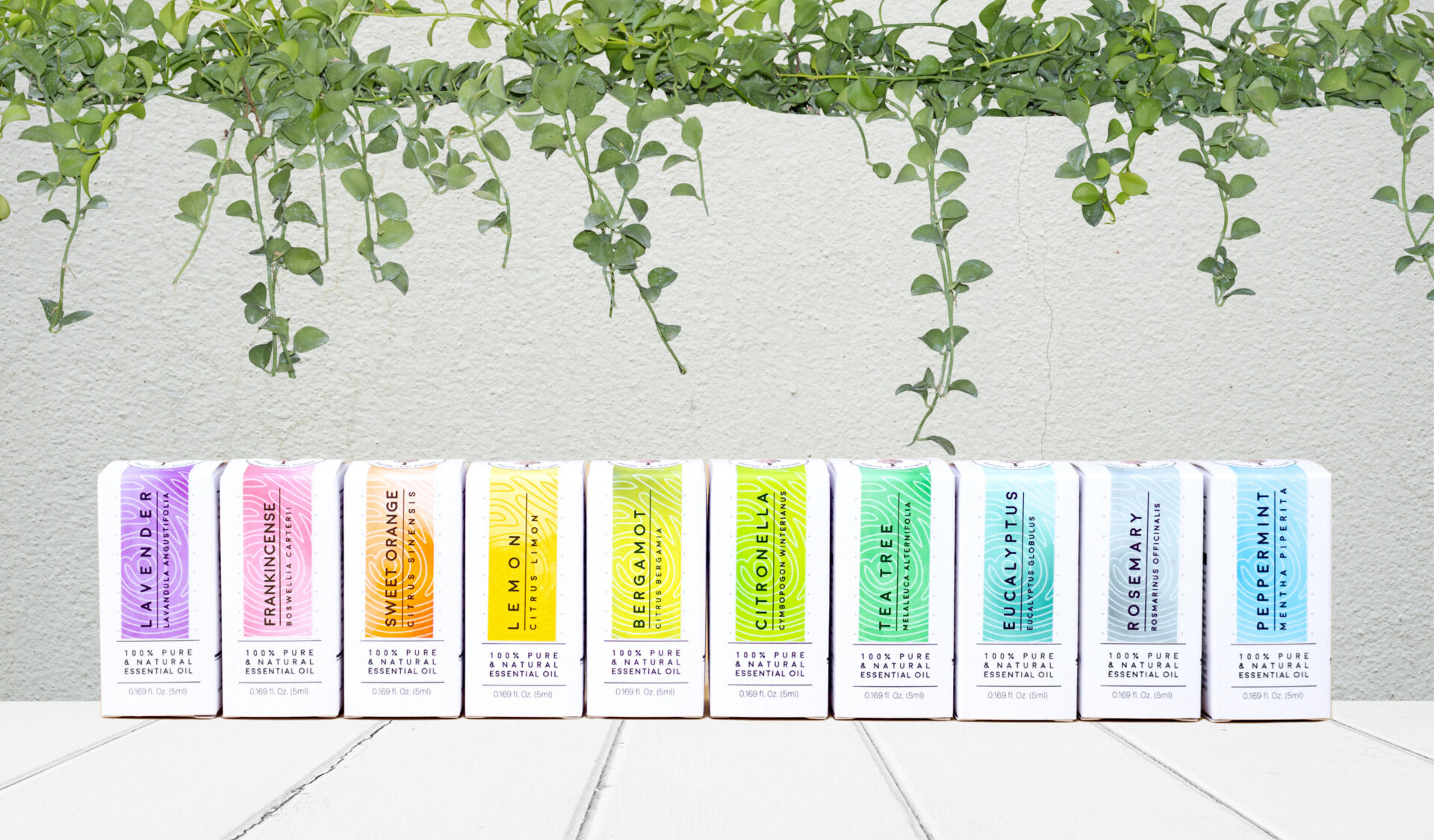
- 7 SNEAKY MYTHS ABOUT THE ESSENTIAL OIL INDUSTRY YOU NEED TO KNOW -
7 SNEAKY MYTHS ABOUT THE ESSENTIAL OIL INDUSTRY YOU NEED TO KNOW
One of the most common example for this is adding lemon essential oil in water because it is believed to be liver cleansing and detoxifying. However, according to an article by Tisserand Institute, while citrus juices and citrus essential oils contain very similar volatile compounds, citrus essential oils do not have citric acid and citric acid is the principal “cleansing” ingredient found in citrus juice which means attributing the same quality to citrus essential oils is mostly nonsense not to mention that drinking essential oils in water comes with a very real risk of gastric irritation.
Last month, we decided to start off our well-being blog by pointing out the reality of consumerism in our society and how might we break free from it.
Today, in the same spirit of truth-telling, I decided to continue our conversation by writing about 7 sneaky myths I have observed and learned from others as I deepened my journey as an aromatherapist.
My hope is that this will help you avoid the safety hazards others have experienced from indiscriminate use of essential oils and lessen the confusion caused by conflicting information available online. May it also lead you to be more confident in choosing aromatherapy products that are right for you and your lifestyle.
MYTH #1: THERE IS ONLY ONE GENUINELY PURE ESSENTIAL OIL BRAND
We are an essential oil brand, but this doesn’t mean we ought to market our products as if we are the only pure essential oil brand you can trust. There are many good quality essential oil brands out there and we are happy to share in the same space for as long as we’re all doing our part in promoting transparency and safe and wise use of essential oils to support your health and wellness.
As I progressed in my practice as an aromatherapist, I saw that there are many essential oils sold at different price points and that brand and price does not necessarily mean that you are getting a product that is better than all the others. But you do have to be careful when the price point gets too cheap because considering how much plant material is needed to have a small bottle of pure essential, selling too cheap can likely mean adulterated.
If you need guidance on how you can choose essential oils to avoid counterfeit or in finding those that offer quality at reasonable prices, you may visit the be careful with counterfeit section in our essential oils 101 guide available in our website.
MYTH #2: MAKE SURE YOU ARE USING "THERAPEUTIC-GRADE" ESSENTIAL OILS
Okay, I’m going to try and navigate this very carefully because this is one area where we often find conflicting information online. I can imagine the confusion when we are advised to buy only pure therapeutic-grade essential oils and then also hear a renowned expert like Robert Tisserand say that “there is no independent, industry standard that is known as “therapeutic grade.”
How then are we supposed to perceive this as consumers? What the lack of independent industry standard means is that the grading system that we hear being thrown around a lot is likely set by the brand. So when we are told to buy only certified pure therapeutic grade, it essentially is saying “buy us” because we are not going to find an independent body who “grades” essential oils regardless of the brand.
To be fair, I have to note that it’s good practice for every brand to have internal standards but the confusion starts if internal standards are perceived as industry standards when there is no independent governing body doing this for us now.
In our attempt to shift away from creating an impression of a “grading system,” we opted to use the term therapeutic quality in our communication because while there is no industry grading system set up at this time, we ought to still know if the quality of the essential oils we are getting is suitable for the task we have in mind. For instance, we cannot expect to enjoy the calming effects of lavender without the presence of linalool and linalyl acetate in its components. The same reason why we find the availability of GCMS results important so we can know the therapeutic benefits we can expect from our essential oils.
Myth #3: Because it’s natural, it’s COMPLETELY SAFE
I am a firm believer in the benefits of staying as close to God’s natural design as we can when it comes to healthcare (also in other aspects of our life) however, just because it is natural, it doesn’t mean that we are free to use it indiscriminately.
While millions of people effectively use essential oils to support their health and wellness without incident, essential oils are still highly concentrated and potent substances. According to Tisserand Institute, essential oils in the bottle are 50-100 times more concentrated than in the plant and versus other herbal extracts that’s why extra caution is needed.
While it isn’t exhaustive, we do have a section on the safe use of essential oils in our website. Feel free to reference as the need arises for you. Promise, we won’t bite even if you’re using a different essential oil brand.
Myth #4: You can freely ingest essential oils
The most common example for this is adding lemon essential oil in water because it is believed to be liver cleansing and detoxifying. However, according to an article by Tisserand Institute, while citrus juices and citrus essential oils contain very similar volatile compounds, citrus essential oils do not have citric acid and citric acid is the principal “cleansing” ingredient found in citrus juice which means attributing the same quality to citrus essential oils is mostly nonsense not to mention that drinking essential oils in water comes with a very real risk of gastric irritation.
Basically, because essential oils are powerful and highly concentrated, its internal use should be approached with extra caution. We do not advocate normalizing the internal use of essential oils because we have the option to err on the side of caution by using less concentrated alternatives such as real fruits and herbs. Nonetheless, if the situation calls for this route of administration, please do so with appropriate medical guidance from a healthcare practitioner with understanding of essential oils or a trained clinical aromatherapist who understands pharmacodynamics, pharmacokinetics, appropriate formulation techniques and safety issues related to this route of application.
Myth #5: Essential oils do not expire
While it’s true that essential oils have anti-bacterial properties and will not grow mold or yeast, this is not where the story ends.
Essential oils may not expire the same way food does but thinking that they have an indefinite shelf life is a myth because they oxidize and this changes the chemical properties of essential oils potentially making it unfit for our intended use. However, if we are aware of the factors that speed up the oxidation process which are oxygen, sunlight and heat (the reason why most oils are stored in a dark colored bottle), we would know what are the ways we can care for our essential oils to enjoy a longer shelf life.
To know more about this, you may visit the make it last section in the essential oils 101 guide we put together for you here in our website.
Myth #6: You need a big collection to get started
Ever found yourself with an entire set of essential oils utterly confused on how you can use them? Its great if you were gifted with the set but if it somehow feels like you bought too many after the purchase then we feel for you.
We’re happy because you got introduced to the wonderful world and benefits of essential oils but at the same time, we also know that you don’t need a lot to get started. There are highly versatile essential oils and you can already do so much with just a few. Lavender alone can support you in a variety of concerns like sleep, anxiety, pain or skin issues so starting with this alone will already benefit you in so many ways without overspending.
But hey, if you would like to buy more and you can put them to good use, why not? But if you’re just starting out and would like to approach this economically, then please know that you can start with just one (or a few) because this way, you don’t just get to save money, the plants will be grateful to you too.
Myth #7: There’s an oil for everything
With the overwhelming amount of information available online about essential oils, it can be easy to think that every health issue we have can be addressed by essential oils thus the popular “there’s an oil for that” line. However, one of the important perspectives I learned in class is to see essential oils as friends who are great in providing support and not as a “cure all” solution to every problem.
A person who has insomnia for instance may be supported by lavender essential oil but the root cause for the sleeping disorder will still have to be addressed in order to find true healing.
So, there you go! These are just some of the myths I observed in my journey and I hope you found this helpful. If you happen to think of others you believe should make its way in this list, feel free to let us know in the comments. We’d be happy to update this or write another one from time to time for as long as it helps you to continue making informed decisions in your wellness journey. Happy oiling!
Tisserand Institute. Citrus Juice: Essential Oil Constituents in Citrus Juice. https://tisserandinstitute.org/learn-more/citrus-juice/
Tisserand, R. (2010, April 10). Therapeutic grade oils – read all about it!. https://roberttisserand.com/2010/04/therapeutic-grade-oils-read-all-about-it/

ABOUT THE AUTHOR
Hi, I’m Des and I’m an entrepreneur, certified aromatherapist and Christian cognitive behavioral therapy practitioner. After leaving behind a 10-year career in the corporate world, I took my certification in aromatherapy and started Aurae Natura. My hope goes beyond providing you reliable and credible information about aromatherapy and therapeutic-quality essential oils but to serve you meaningful content that will also nourish you mentally, emotionally and spiritually.

SHARE article